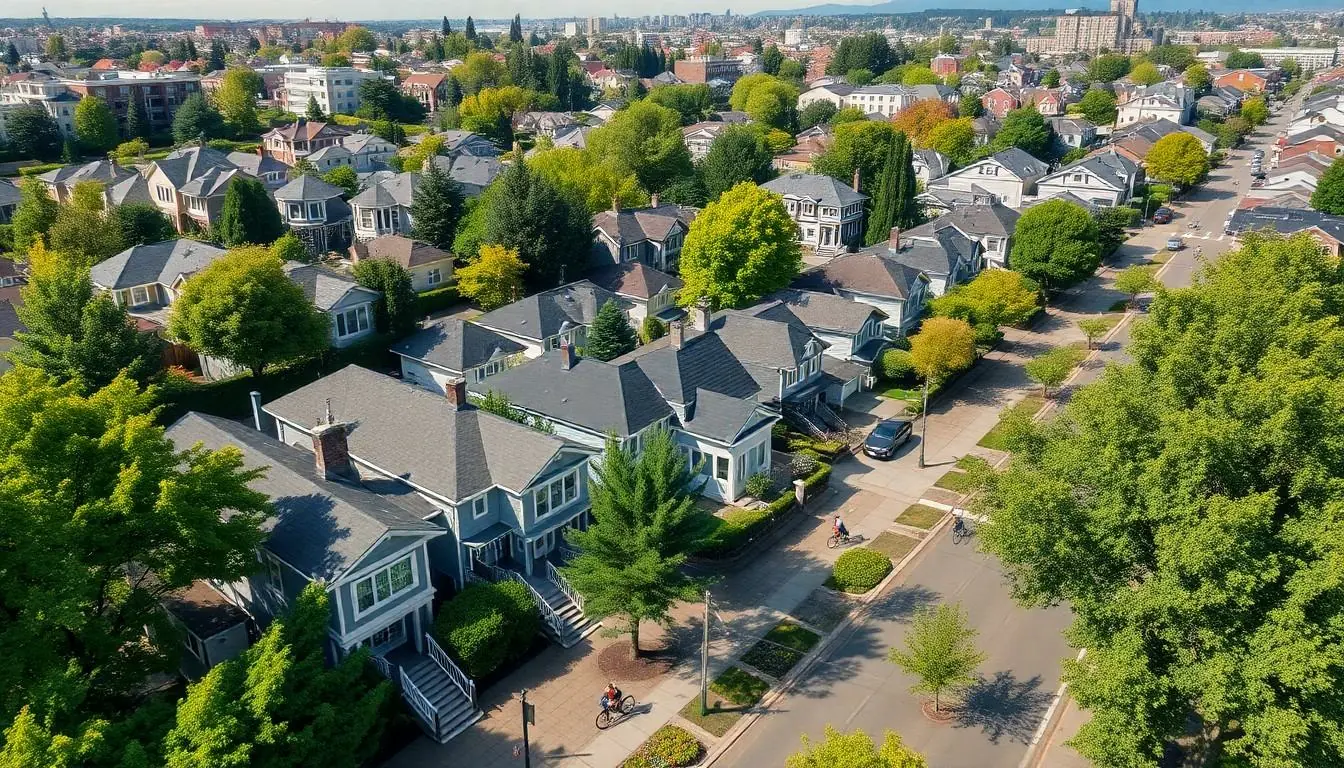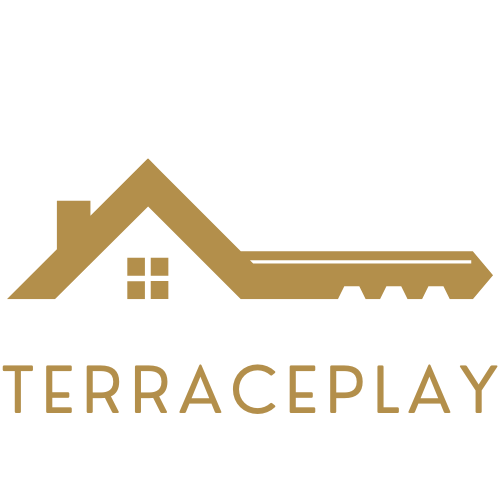Portland’s real estate market is like a hipster coffee shop—always buzzing and full of surprises. With its quirky neighborhoods and vibrant culture, it’s no wonder buyers and investors are flocking to the City of Roses. Whether you’re dreaming of a charming bungalow in Northeast or a sleek condo downtown, understanding the latest trends is key to making smart decisions.
From skyrocketing home prices to the rise of eco-friendly builds, Portland’s real estate landscape is evolving faster than you can say “artisanal avocado toast.” As the demand for housing continues to grow, so do the opportunities for savvy buyers. Buckle up as we dive into the latest trends shaping this unique market and discover what makes Portland the place to be for real estate enthusiasts.
Table of Contents
ToggleOverview of Portland Real Estate Trends
Portland’s real estate market showcases rapid growth, with home prices climbing approximately 10% per year since 2020. Buyers encounter a competitive landscape, influenced by limited housing inventory and increased demand. Eco-friendly construction practices become mainstream, reflecting the city’s commitment to sustainability. Properties featuring green technology and energy-efficient designs attract eco-conscious buyers, highlighting the city’s culture.
Neighborhoods such as Buckman and Alberta Arts emerge as hot spots, characterized by vibrant communities and unique amenities. Data indicates that homes within these areas sell quickly, often above listing prices. The luxury market also sees a surge, with upscale properties in neighborhoods like the West Hills gaining attention from affluent buyers seeking urban living with scenic views.
Investors recognize opportunities in the rental market, particularly as the demand for multifamily units grows. Rental vacancy rates remain low, often below 4%, ensuring consistent rental income potential. Locally sourced materials and community-driven designs gain popularity, attracting buyers who prioritize connection to their surroundings.
As remote work trends continue, suburban areas near Portland appeal to those seeking larger homes with outdoor space. This trend results in shifting priorities for potential homeowners, altering traditional expectations. The ongoing evolution of Portland’s real estate market emphasizes the need for buyers and investors to stay informed and agile. Understanding these trends facilitates making educated decisions in this vibrant, dynamic market.
Current Market Conditions

Portland’s real estate market displays several compelling characteristics that define its current landscape. Home buyers and sellers engage in a dynamic environment shaped by significant trends.
Average Home Prices
Average home prices in Portland reflect a robust upward trajectory, rising about 10% yearly since 2020. As of 2023, the median home price stands at $550,000. Neighborhoods like Buckman and Alberta Arts contribute to this increase, with homes often selling above listing prices. Buyers frequently compete for desirable properties, driving prices even higher. High demand fuels interest in luxury properties, particularly in the West Hills, where affluent buyers seek upscale investments. Investors perceive this trend as an opportunity, predicting sustained appreciation in property values.
Inventory Levels
Inventory levels remain a critical issue in Portland’s real estate market. Limited housing supply leads to fierce competition among buyers. As of late 2023, available listings have decreased by approximately 15% compared to the previous year. Sellers face pressure to price homes competitively, resulting in quicker sales and, in many cases, bidding wars. The growing demand for multifamily units also complicates inventory challenges as renters seek stable living options. Understanding these inventory trends aids buyers and investors in navigating the market.
Neighborhood Highlights
Portland’s real estate market showcases distinct neighborhoods, each with unique offerings that appeal to a variety of buyers. Understanding these areas aids in making informed decisions.
Popular Areas for Buyers
Buckman and Alberta Arts rank among the top neighborhoods for potential homeowners. Homes in these areas frequently sell above the listing price, reflecting strong demand. City amenities and vibrant cultural scenes contribute to their allure. The appeal of local coffee shops and art galleries enhances the livability factor. Home prices in these neighborhoods align with the overall trend of a median price around $550,000. Additionally, the proximity to parks and schools attracts families, making Buckman and Alberta Arts increasingly popular among diverse buyers.
Emerging Neighborhoods
Several neighborhoods in Portland are gaining attention from buyers eager for investment opportunities. Places like Lents and St. Johns are becoming hotspots due to ongoing development initiatives. Infrastructure improvements, including transportation upgrades, boost their accessibility and desirability. Prices here remain more affordable, offering opportunities for first-time buyers. Community-driven events and local businesses foster a sense of belonging in these areas. As these neighborhoods continue to evolve, they present unique chances for those looking to invest in Portland’s real estate landscape.
Key Factors Influencing Trends
Portland’s real estate trends reflect several crucial factors shaping the market. Economic indicators and demographic changes play significant roles in driving buyer behavior and property values.
Economic Indicators
Rising inflation and interest rates are influencing the housing market. Home prices have climbed approximately 10% per year since 2020, with the median price reaching $550,000 as of 2023. Limited housing inventory contributes to the competitive landscape, as it has decreased by about 15% compared to the previous year. Bidding wars have surged as buyers vie for available properties. The thriving luxury market, especially in areas like West Hills, caters to affluent buyers seeking upscale investments. Low vacancy rates within the rental market signal growing demand, particularly for multifamily units, adding to the overall dynamism of the Portland real estate scene.
Demographic Changes
Changing demographics significantly impact Portland’s housing market. Younger millennials and Gen Z buyers increasingly seek urban living, drawn by vibrant neighborhoods and city amenities. Families favor areas like Buckman and Alberta Arts, particularly due to access to parks, schools, and cultural events. First-time buyers are discovering emerging neighborhoods such as Lents and St. Johns, where more affordable prices enhance their chances of homeownership. Remote work trends have shifted preferences toward suburban areas, creating new demands for housing options. As the population evolves, understanding these factors proves essential for navigating Portland’s complex real estate market.
Future Projections
Portland’s real estate landscape is poised for significant evolution in the coming years. Market dynamics continue to shift, shaping opportunities for buyers and investors.
Market Predictions
Data suggests that home prices may maintain a steady increase of around 8% annually through 2025. Factors driving this growth include a persistent demand for housing and ongoing urban development projects. Neighborhoods like Buckman and Alberta Arts are expected to retain high interest due to their cultural appeal and amenities. Additionally, emerging areas, such as Lents and St. Johns, may witness a surge in buyer activity as prices remain relatively affordable. Rental markets could strengthen further, driven by low vacancy rates and high demand for multifamily units.
Potential Challenges
Several challenges could impact the Portland real estate market. Rising inflation and interest rates present barriers for potential buyers. Limited housing inventory, which has decreased by 15%, may result in heightened competition and bidding wars. Simply put, these conditions can lead to frustration for first-time buyers. Changes in demographic preferences suggest that the market’s current trajectory may shift as remote work influences suburban migration. Understanding these obstacles is crucial for navigating potential pitfalls in this vibrant market.
Portland’s real estate market is undeniably vibrant and evolving. With rising home prices and a competitive landscape buyers must stay informed to navigate the challenges ahead. Emerging neighborhoods offer promising opportunities for investment while maintaining the city’s unique charm.
As trends continue to shift due to economic factors and changing demographics, potential buyers should remain adaptable. Understanding the intricacies of this market will be crucial for making strategic decisions. The allure of Portland’s culture and community ensures that its real estate landscape will remain an exciting space for years to come.


